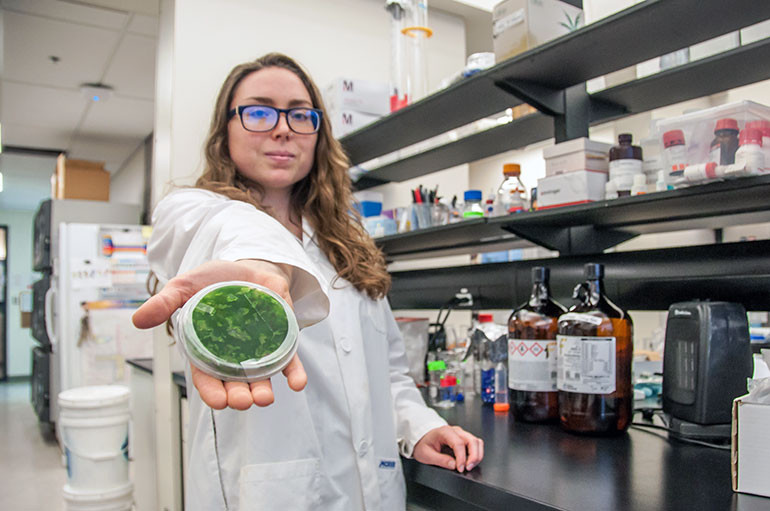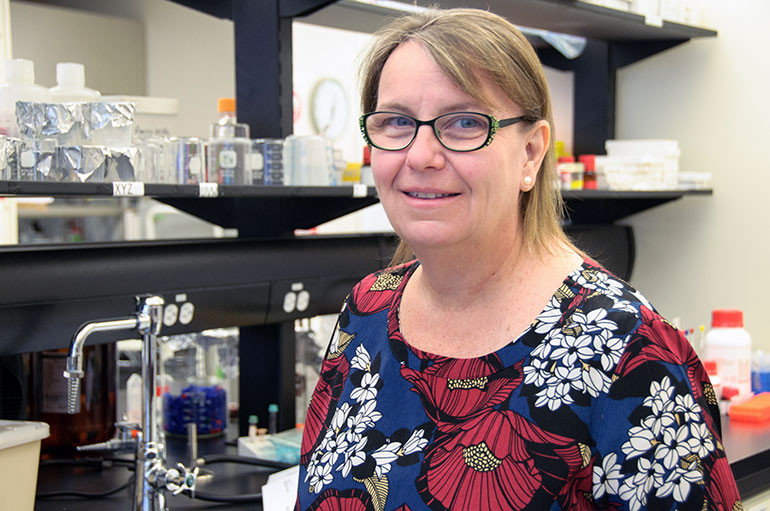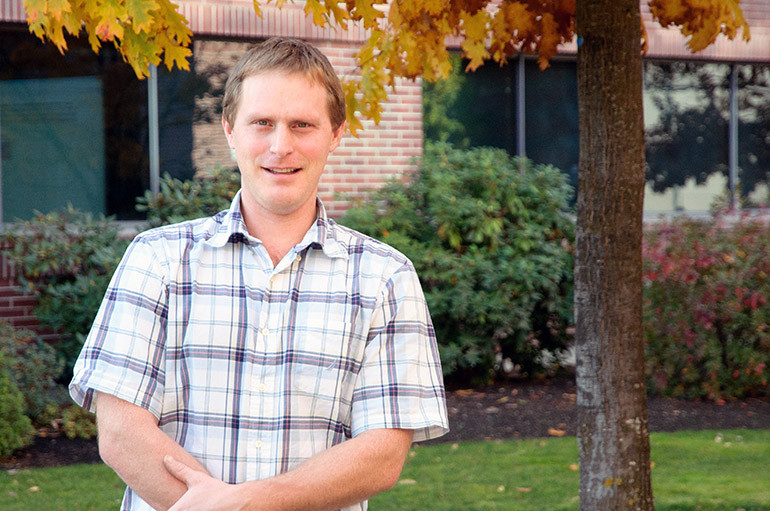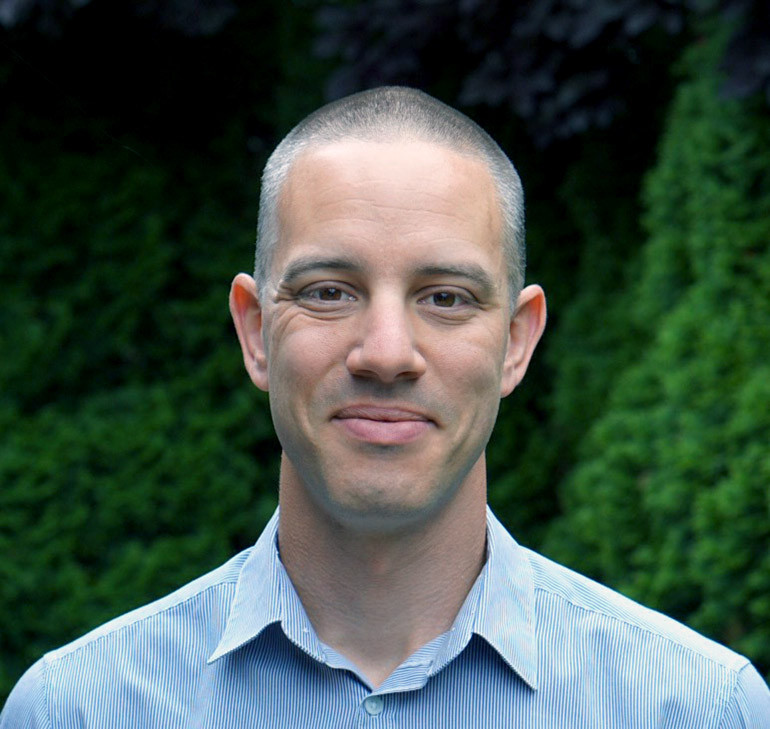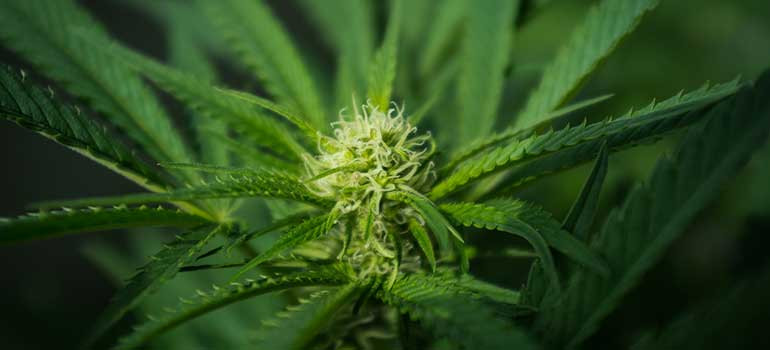Partnership with licenced industry grower expands research potential
Researchers at UBC Okanagan and Thompson Rivers University have teamed up with an industry partner to investigate the many useful products that can be made from cannabis.
Dubbed the Cannabis Bio-products Toolbox, the collaborative research project will explore the vast range of bioproducts that can be made from the plant—these include pharmaceuticals, nutritional products, and industrial fibre.
“Cannabis is a source of many potentially valuable products,” says UBC Okanagan biology professor Michael Deyholos. “But because of its prohibition over the past decades, development of new products from cannabis has lagged behind other crops.”
Deyholos, whose research explores the potential of flax and hemp, says on the medicinal side of cannabis there are dozens of compounds in the plant that may have specific health benefits. The researchers want to breed strains that are enriched in various combinations of these compounds, tailored to needs of specific patients.
“Besides these pharmaceutical compounds, there are healthful oils and proteins in the seed that we would like to enrich,” he adds. “All of this requires a better understanding of the genes and chemicals already present in different strains of cannabis, and that is what this project is designed to do.”
Deyholos says while cannabis is best known as a source of THC—the principal psychoactive ingredient—the plant produces at least 90 other cannabinoids, many of which have potent biological activities. Some of these compounds are being examined for the treatment of cancer, Parkinson’s disease, and other serious health conditions.
“Our team has experience in the characterization of a range of relevant biosynthetic pathways in cannabis stems, flax seeds, and terpenoid-producing tissues of lavender,” he adds.
Deyholos is joined by UBC Okanagan biology professor Soheil Mahmoud—who studies the potential of lavender, UBC chemistry professor Paul Shipley—whose lab examines the chemistry of medicinal plants, and Thompson Rivers University chemistry professor Bruno Cinel —a natural products chemist who specializes in the use of Nuclear Magnetic Resonance Spectroscopy for structural determination and chemical analysis. Together with a team of post-doctorate fellows and graduate students, they will work at the laboratories of industrial-based companies Valens AgriTech and Supra THC Services—both of which are fully licensed by Health Canada to conduct research and analysis on cannabis plants and byproducts.
Deyholos notes that neither university has a licence to grow or store cannabis on campus but the industrial partner has facilities and licenses to grow more than 4,000 plants for research purposes.
“The facilities available at Valens Agritech and the analytical capabilities of Supra THC Services are truly state-of-the-art,” he says. “Having access to properly licensed facilities within an industrial setting will enable our talented interns to gain critical skills in a rapidly growing industry.”
Work at the industrial site will be supervised by Rob O’Brien and Yasantha Athukorala.
“It is an honour to be associated with such a collection of accomplished scientists,” says Valens AgriTech President and Chief Science Officer O’Brien. “The research derived from this funding will provide insights into the complexity of gene expression in cannabis and will help produce new varieties that can have a greater health impact.”
The Cannabis Bio-products Toolbox was awarded a three-year $330,000 Mitacs research grant.
About Valens AgriTech, Supra THC Services and Valens GroWorks Corp.
Valens GroWorks Corp. is a CSE-listed company (VGW:CSE) with an aggressive buildout strategy in progress. The Company seeks to capture a broad spectrum of medical cannabis users and adult recreational users once legalized, as well as clinical trial and R&D clients, in pursuit of its ambitious seed-to-sale and farm-to-pharma objectives.
The Company has two wholly-owned subsidiaries based in the Okanagan Valley of British Columbia: 1) Valens Agritech Ltd. (“VAL”) which holds a Health Canada Dealer’s License, enabling cultivation and R&D and 2) Supra THC Services Inc., a Health Canada licensed cannabis testing lab providing sector-leading analytical and proprietary services to Licensed Producers and ACMPR patients. Supra has collaborated with Thermo Fisher Scientific (Mississauga) Inc. to develop a “Centre of Excellence in Plant-Based Medicine Analytics” centred in Kelowna, British Columbia.
For more information, visit:
About Thompson Rivers University
Thompson Rivers University is committed to participating in community partnerships that drive the knowledge and innovation economy in British Columbia’s Southern Interior.
Named after the view from its main Kamloops campus overlooking the junction of the North and South Thompson rivers, TRU is proud to support the nearly 26,000 students on its campuses in Kamloops and Williams Lake, and in online programming through TRU Open Learning.
With a 45-year history of excellence in education in the BC Interior, TRU prides itself on providing students with access to a research-informed education, and providing our communities with access to the benefits of scholarly, research, and creative activities that solve community problems and enrich community life.
About UBC’s Okanagan campus
UBC’s Okanagan campus is an innovative hub for research and learning in the heart of British Columbia’s stunning Okanagan Valley.
Ranked among the top 20 public universities in the world, UBC is a globally recognized research-intensive institution whose Okanagan campus was established in 2005.
The Okanagan campus emphasizes smaller class sizes, experiential learning, and research activity for students, combining a world-class UBC degree with a tight-knit and entrepreneurial community.
As part of North America’s most international university, the campus is home to 9,000 students representing 98 countries.
The post UBC and TRU team up to explore useful bio-products found in cannabis appeared first on UBC's Okanagan News.





